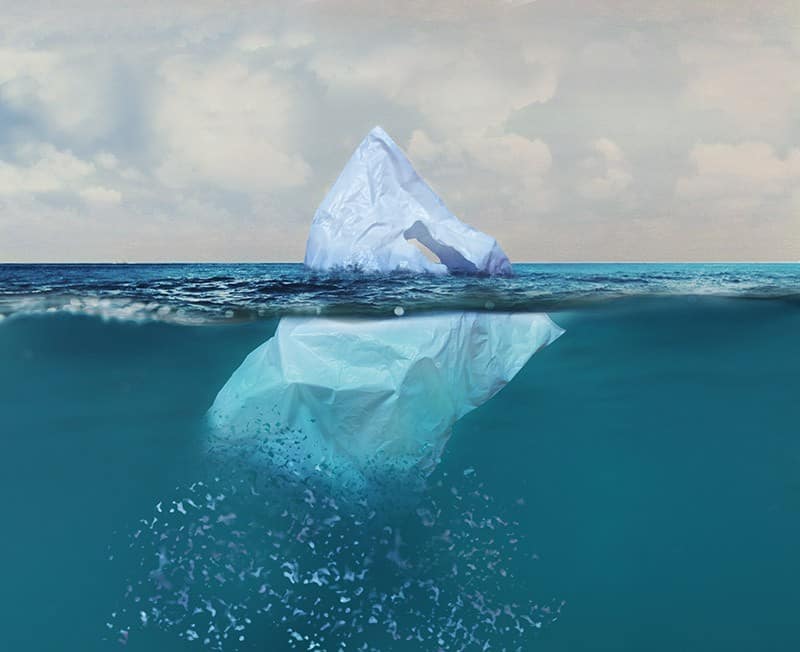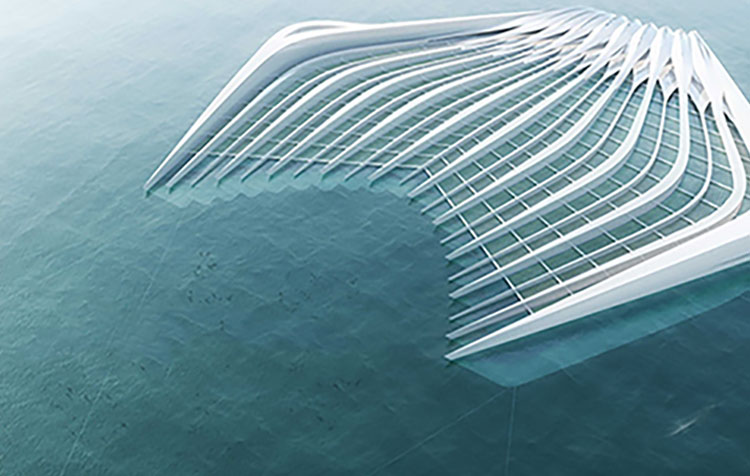In my constant search for great projects to counteract the Plastic waste in the environment I am interested in the project Pacific Garbage Screening came across. I arranged an interview with the initiator Marcella Hansch to learn more about the project and its technology, which at first glance looks more like a space shuttle. Enjoy the interview!
What is Pacific Garbage Screening and what are you guys up to?
Pacific Garbage Screening (PGS for short) is a platform with a special design that filters plastic and small plastic particles from the oceans without endangering living creatures. It then processes the Plastic to energy and biodegradable plastic.
In the meantime, we are behind the project as a non-profit association/NGO and are working with almost 40 volunteers to turn the concept into a feasible technology. The first step is prototypes for rivers and estuaries to filter out the plastic before it even reaches the oceans.
In addition, we want to draw attention to the issue, raise awareness among people and encourage each individual to do so, Avoid plastic waste. Because every single consumer has the power to do something! And we must become aware of this power and use it!
How are you going to get trash out of the ocean with Pacific Garbage Screening?
The principle is actually very simple. The platform's design calms ocean currents down to a depth of about 50 meters. Plastic particles are lighter than water and can thus rise to the surface within the platform and be skimmed off there. There are no nets. Fish and marine animals can swim through the platform. The plastic is not waste, but a valuable resource because the material is petroleum-based. Therefore, we don't want to burn it, which unfortunately happens so often, but use it sustainably, convert it to clean energy and produce new biodegradable plastic products based on algae.
What do you do better than THE OCEAN CLEANUP and Boyan Slat?
Our concept works without nets and barriers - according to a passive principle. Fish and other living creatures are therefore not endangered. We also focus primarily on filtering microplastics and smaller plastic particles from rivers and the sea that float below the surface.
How can we all support Pacific Garbage Screening in the endeavor?
On June 8, 2018 started our big crowdfunding campaign - on the day of the sea! We can use every donation. By the way, there are also some nice thank-you gifts! In addition, we are of course happy about active support. But also if everyone simply starts with his own consumption behavior in everyday life. (Note: Funding goal reached!!)
PGS_explanatory_filmm_german from Pacific Garbage Screening on Vimeo.

Paint us a picture. What will the oceans look like in 2050 and why?
By 2050, there has been a rethink. Mankind has understood how important our planet is for our continued existence and has pulled the emergency brake at the last minute. People and nations are no longer working against each other, but with each other. There are platforms in the oceans and rivers around the world that filter out plastic and process it. The large platforms at sea are increasingly being converted into research stations as fish stocks slowly recover and biodiversity flourishes again. The production of plastic for consumer products has been completely halted. Petroleum-based plastics are now only used where they are useful as a durable material.
PGS has made an important contribution to this rethinking with its commitment and is now active worldwide. We advise global corporations on how they can produce sustainably, work with many environmental protection organizations and save the world!
This is also in line with the CareElite vision! Pacific Garbage Screening is a great project against plastic waste in the sea with a passionate team behind it. Here you can support crowd funding and also get some gifts as a thank you.









Since the research of Masaru Emoto we know that water can "hear" and "read", i.e. that the water quality can be improved by music and texts, sounding and talking. Couldn't these purification systems also be equipped with a sound system with, for example, Mozart or Bach compositions? Or prayers from all world religions? That would be important, for example, in places where the seas have been badly damaged by nuclear weapons underwater tests. Or in the area of Fukushima. Or even if you think about the oil spill in the Gulf of Mexico in 2010. That would enormously strengthen the regenerative capacity of the water.
Hi Karin! That sounds exciting! Do you have any more information or would you like to write a guest article on the subject? 🙂
Many greetings,
Christoph
Comments are closed.